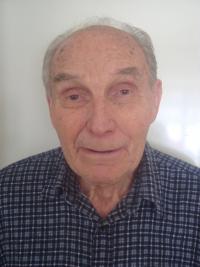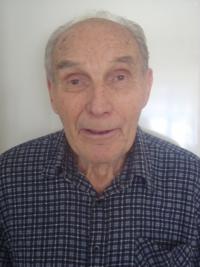Nobody can imagine what one experienced

Stáhnout obrázek
František Cvingráf was born November 28, 1923 in the village Rudlice near Znojmo in the then Czechoslovakia. He completed elementary school and then he apprenticed as a tailor in Únanov. From 1942 he was sent to do forced labour near Dresden where he worked for the railway company. He and his friend attempted to illegally cross the border back to Czechoslovakia and to visit their parents, but at the Protectorate border he was arrested and subsequently interned in Lovosice and in the Small Fortress in Terezín. Then he was transported to the concentration camp Gross-Rosen, where he worked in the infamous quarry. From there he was taken to Hersbruck near Nuremberg where the auxiliary camp of the concentration camp Flossenbürg was located. The end of the war was drawing near and František Cvingráf had to undergo the death march from Hersbruck to the concentration camp Dachau. On April 19, 1945 he was liberated by the American army in Dachau. After the war he did his military service and then he worked as a tailor and as a switchman for the railways. At present (2015) he lives in the village Tuchlovice near Kladno.

